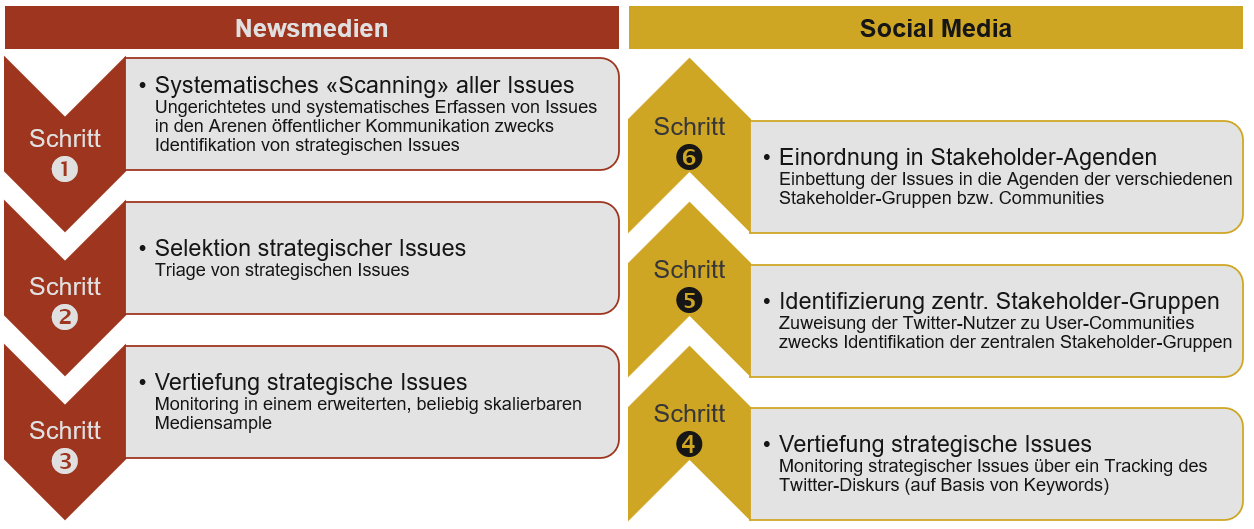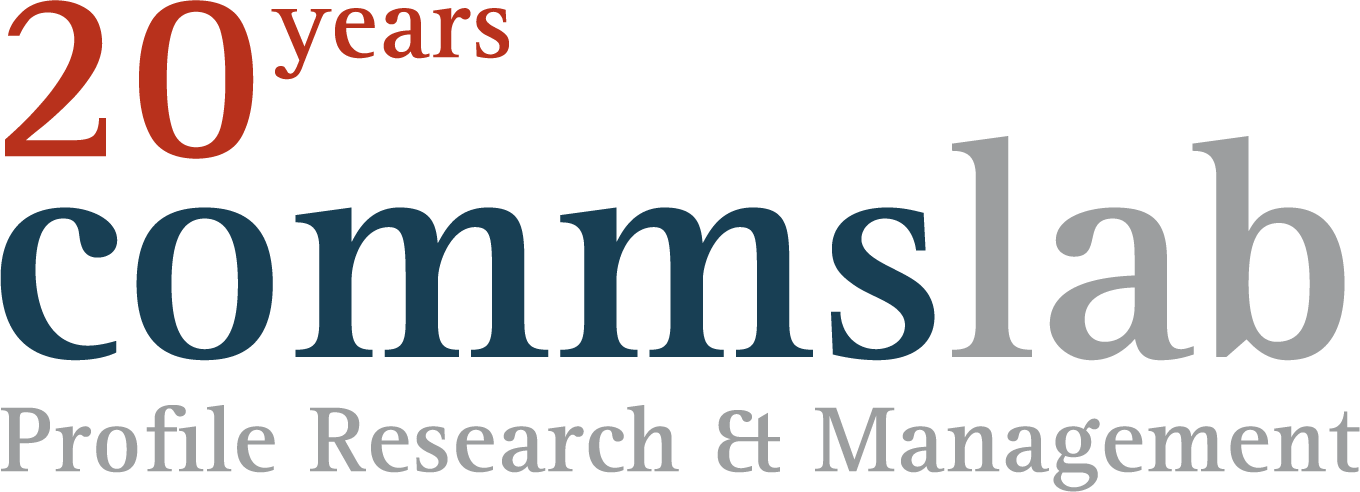Analyses and Reporting
commsLAB bases its consulting activities on an empirical, scientifically sound database. We have many years of experience in the areas of reputation and issue monitoring, where we also work closely together with our long-term strategic partner, the fög – Research Centre for the Public Sphere and Society at the University of Zurich.
An analysis of one’s own reputation is an indispensable prerequisite for the long-term value-adding positioning and management of an organization. We offer you the following analysis options, whereby the setup can be tailored to your needs:
I - Reputation analysis historical/ongoing
II - Benchmarking with relevant peers
III - Reputation Check and KPI system
Example graphs:
Issue Monitoring
Issue monitoring is an important component for the early recognition of relevant developments relating to an organization. Early detection does not mean constantly surprising the organisation with new and spectacular issues. It rather means correctly assessing the career opportunities and reputation effects of mainly known issues.
A comprehensive issue monitoring is characterized by the following steps:

We offer you two analysis options, whereby the setup can be tailored precisely to your needs:
I - Organization-specific issue monitoring
Fields of application:
- Supplement to Reputation Monitoring
II - Issue monitoring of strategic issues
Fields of application:
- Campaign communication
- Political communication
- Scandal and crisis communication
Example graphs:
Strategic Science Partner fög – University of Zurich
In the areas of reputation and issue monitoring, we work closely together with our long-term strategic partner, the fög – Research Center for the Public Sphere and Society at the University of Zurich. The fög is a leading research institution in the field of public relations and communication research.
Thanks to its collaboration with fög, commsLAB guarantees an independent approach that is recognised in international communication research. This includes a methodology committed to strict quality standards and constantly integrating the most recent scientific findings.
Sedimented Reputation Index® (SRI®)
The main indicator is the Sedimented Reputation Index® (SRI®) developed by commsLAB AG and the fög – Research Center for the Public Sphere and Society at the University of Zurich. The SRI® models the historically grown reputation anchored in public memory and allows the presentation of long-term, sedimented reputation developments.
The SRI® combines in a unique manner the effects of resonance and reputation in a long-term perspective. It is calculated over time and takes into account—on a daily or weekly basis—the values of the previous period, weighted with a “forgetting” rate. The SRI® is expressed on a scale ranging from +100 (exclusively positive resonance) to -100 (exclusively negative resonance).
The methodology stems from the insight that reputation of an actor is defined not only by current events but also, to some extent and for a period of time, by past events that have attracted public attention. The SRI®takes account of the fact that, in the long run, major high-resonance events determine the reputation dynamics of organizations and companies.
